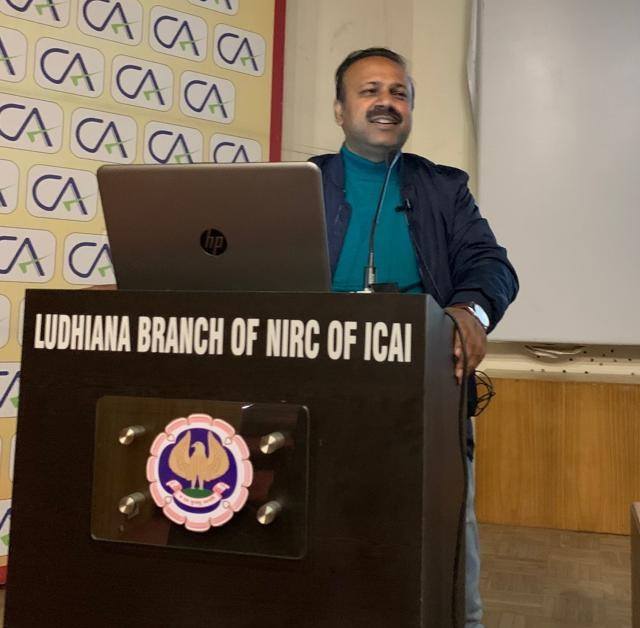Analysis of SC decision in Reliance Energy Ltd. holding that deduction for “profits and gains” derived from eligible business is not limited to “business income”
Introduction
Supreme Court in Reliance Energy Ltd., [2021] 127 taxmann.com 69 (SC) pronounced on 28-04-2021 has drawn distinction between ‘profits and gains derived from eligible business’ and ‘business income’ to explain the scope of deduction on profits and gains derived from eligible business.
Impugned Legal Provisions
As per section 80-IA(1), where the gross total income of an assessee includes any profits and gains derived by an undertaking or an enterprise from any business referred to in sub-section (4) (such business being hereinafter referred to as the eligible business), there shall, in accordance with and subject to the provisions of this section, be allowed, in computing the total income of the assessee, a deduction of an amount equal to hundred per cent of the profits and gains derived from such business for ten consecutive assessment years.
As per section 80-IA(5), Notwithstanding anything contained in any other provision of this Act, the profits and gains of an eligible business to which the provisions of sub-section (1) apply shall, for the purposes of determining the quantum of deduction under that sub-section for the assessment year immediately succeeding the initial assessment year or any subsequent assessment year, be computed as if such eligible business were the only source of income of the assessee during the previous year relevant to the initial assessment year and to every subsequent assessment year up to and including the assessment year for which the determination is to be made.
As per section 80AB, Where any deduction is required to be made or allowed under any section 63[***] included in this Chapter under the heading “C.—Deductions in respect of certain incomes” in respect of any income of the nature specified in that section which is included in the gross total income of the assessee, then, notwithstanding anything contained in that section, for the purpose of computing the deduction under that section, the amount of income of that nature as computed in accordance with the provisions of this Act (before making any deduction under this Chapter) shall alone be deemed to be the amount of income of that nature which is derived or received by the assessee and which is included in his gross total income.
Facts of the case
The assessee is engaged in the power generation business. The assessee derived business income as well as income from other sources from the power generation undertaking. The assessing officer limited the deduction u/s 80-IA/IB to the business income of the assessee and rejected the claim of deduction on income from other sources. [Para 3]
Contention of Revenue
1. Section 80AB makes it clear that for the purpose of deduction in respect of certain incomes, deduction had to be given on the income of the nature specified in the relevant section and allowed against income of that nature alone. Hence income from business alone to be considered.
2. 80-IA pertains to profits and gains of business and hence deduction allowable only for “income from business”
Observations of Supreme Court
1. Supreme Court concurred with observations of the appellate authority that section 80AB was introduced to nullify the supreme court judgment in Cloth Traders P Ltd ., as clarified by CBDT in Circular No. 281 dated 22-09-1980. Section 80M allowed deduction for intercorporate dividends which was held to be allowed by supreme court on gross amount of dividends. The Circular clarified that supreme court judgment is not as per intendment of law and hence section 80AB was introduced so that deduction may be allowed on net amount and not on gross amount. Supreme Court held that section 80AB can not be rad to be curtaiiling the width of section 80-IA. Section 80AB is with respect of computation of deductions on “net basis ” only [Para 6,9]
2. At para 14. Supreme Court referred to its decision in Synco Industries on section 80-I(6) which is pari materia with section 80IA(5). In Synco Industries Supreme Court held that loss from other undertakings can not be taken to reduce the deduction of income from industrial undertaking eligible u/s 80-I.
3. Supreme Court also referred to its decision in the case of Canara Workshop P Ltd, where it was held that loss from alloy maunfacturing business can not be set off from the profits of automobile ancilliary business profits for the purpose of calculation of decution u/s 80E.
4. Hence, Supreme Court held , in Para 15, that scope of 80-IA (5) is limited to determination of quantum of deduction u/s 80-IA (1) by treating “eligible business” as only source of income. 80-IA(5) can not be pressed into service for reading a limitation of section 80-IA (1) to business income only.
Conclusion:
Supreme Court has laid down that for the purpose of computation of deduction eligible business as a whole has to be treated as only source of income. Head of income in which the income is assessable is not relevant. Losses from non eligible businesses also can not reduce the quantum of deduction.





